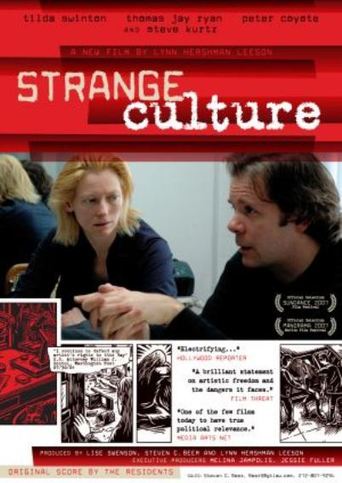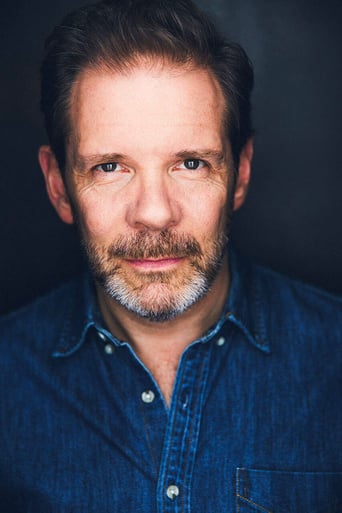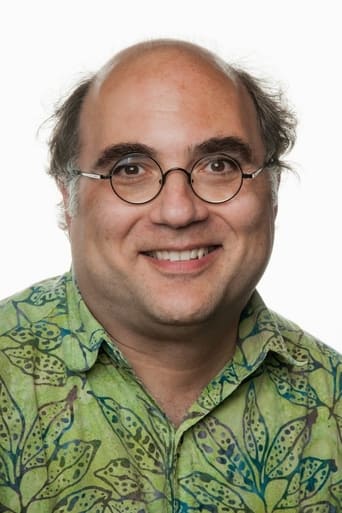

Strange Culture (2007)
The film examines the case of artist and professor Steve Kurtz, a member of the Critical Art Ensemble (CAE). The work of Kurtz and other CAE members dealt with genetically modified food and other issues of science and public policy. After his wife, Hope, died of heart failure, paramedics arrived and became suspicious when they noticed petri dishes and other scientific equipment related to Kurtz's art in his home. They summoned the FBI, who detained Kurtz within hours on suspicion of bioterrorism.
Watch Trailer
Cast


Reviews
I gave this documentary high marks only because of its chilling story and message and not necessarily for its production value (though it was still engaging.) In the tradition of other films in the genre like Erin Brokovich, Silkwood, Norma Rae, etc., this is another disturbing account of innocent lives destroyed by corporate greed and corrupt motives. Only in this case, art, education and the First Amendment are on trial along with the victim. Respected science teacher and artist, Steve Kurtz, wakes up one morning to find his wife, (dramatization played by the great Tilda Swinton) dead next to him in bed, with the cause of death quickly determined to be heart failure. The paramedics who arrive on the scene notice the art-show-related chemicals and science-lab paraphernalia and alert the FBI which leads to Kurtz being arrested for "bio-terrorism". It's a surreal nightmare for Kurtz who never even gets a chance to properly grieve the sudden loss of his wife. But things don't end once the "terrorist" charge is cleared due to insufficient evidence. Since his art show was conceived as an exposé to educate/inform the public about genetically-modified food, the powers that be (industry/companies) must make it go away. Helped by an ambitious prosecutor in search of career advancement and fame, the charge is swiftly changed to something that would stick: Mail fraud. Absurd? Not when powerful industry is involved and would stop at nothing to protect their interests.Tilda Swinton is wonderful here in the few dramatization scenes she's in. This is a film that was missed by many, but should be seen by all.
It all starts with a real event, the arrest and then continuous harassment of Steve Kurtz from 2004 until 2008 for the sole reason that he used biological material as a kind of art form. The story, truly incredible, yet totally real, needs to be heard. It shows how, under the right motivation, the FBI can do almost anything to someone for no reason at all.The film, however, is made almost like a conspiracy theory flick, one of those artsy, liberal, intellectual in your face things that don't gather the normal crowd of people because they are simply weird for a common person. You see a long haired university professor that works with bacteria as an art form in order to promote awareness of genetically modification in the foods marketed in the US. He is ridiculous! However, what happens to him (and his friends) is completely real.Now, I think this story could have been told a lot better and it should have been because it is one of those tales that show how close a proud democracy can turn overnight into a dictatorship or a police state. There is one line in the film where Steve Kurtz says that if the legal precedent would have succeeded, the power of the Department of Justice would have doubled overnight, by simply allowing them to turn any civil misdemeanor into a criminal issue.Bottom line: whether you will watch this film or not, Steve Kurtz is a man you should at least read about, get your facts straight, see how it could all have gone wrong for all of us if he (and perhaps a lot of people in his situation) would have caved in to the pressure.
I came to this because its folded. It is consists of some unsophisticated notions about "them" corrupting food, some art about it, deliberately folded into the artifacts, a documentary about the making of that art, a profile of the artist, outside the documentary, a story of how "they" interpret the art as a murder plot and a documentary of that story.And it has Tilda Swinton whose presence usually signals something profound.But the film is too clumsy to do its work. You can roughly get the facts. Its another case of an event that becomes caught up in forces no one controls... that finds its way into film by way of combat with similar forces. Those forces come from story threads, conventions, urges that this filmmaker is as helpless to control as the protagonist.There's one interesting idea here. The character played by Tilda is the artist's wife, Hope. She is the genius of an art collaborative, who is not an artist herself in the sense of creating. She is the "explainer," who makes the collaborative work by providing the story hooks into what these guys do.The story is triggered by her death. The authorities arrive and without her storyweaving ability, put together their own conspiracy about a conspiracy. This film could have used her.This film could have been "The Lives of Others," with the Bush FBI in place of the Stasi.Still, even if the film fails it is far, far more powerful a message than Moore could put together.Ted's Evaluation -- 2 of 3: Has some interesting elements.
This is an important movie to watch, especially for young adults and/or patriotic Americans who may not have heard about a tragic period in US history referred to as McCarthyism: a period when the government led an aggressive campaign against its own citizens looking for communist sympathizers- there was even a "House of Un-American Activities Committee" formed. Thousands were threatened, blacklisted, and arrested - mainly teachers, artists, folks in the entertainment business and government employees - guilty of nothing other than free thought.Since 9/11, we and our government are acting hysterically. The events as captured in this film are evidence."Some of the basic principles of Americanism: The right to criticize; The right to hold unpopular beliefs; The right to protest; The right of independent thought." from Statement of Senator Margaret Chase Smith, June 1, 1950




